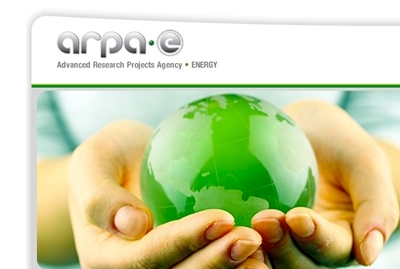The U.S. Department of Energy announced this week that it would award $11 million in grants to four MIT-led research projects aimed at developing technologies that could fundamentally change the way the country produces and uses energy.
The awards are part of $106 million in grants that the DOE’s Advanced Research Projects Agency-Energy (ARPA-E) is giving to 37 energy-research projects in 17 states. By supporting these projects, ARPA-E hopes to accelerate innovation in clean-energy technologies, increase America’s competitiveness and create jobs.
One MIT project that was selected for a $5 million grant involves designing a new type of battery that could make electric vehicles more affordable by combining the best characteristics of rechargeable batteries and fuel cells. The research on the so-called “semi-solid flow battery” is being done in collaboration with Rutgers University and A123 Systems Inc., an MIT spin-off company that develops and manufactures lithium-ion batteries and systems.
Another MIT project received $3.2 million to engineer two microbes that can convert carbon dioxide and hydrogen into oil, which could be refined into biodiesel fuel. Harvard University and the University of Delaware are collaborating on the research.
In a separate grant, MIT received $1.7 million to engineer a bacterium that can consume hydrogen and carbon dioxide to produce butanol, which could be used as motor fuel. That research is being done in collaboration with Michigan State University.
MIT also received $1 million to develop a new method known as electrochemically mediated separation (ECMS) that will lower the energy required to capture carbon dioxide and allow for simpler retrofitting to existing coal-fired power plants. Electronics conglomerate Siemens is involved in the research.
An additional research project, in which MIT is a collaborator but not the lead institution, received $3.2 million to develop an inexpensive, rechargeable magnesium-ion battery for electric and hybrid-electric vehicle applications. The research is led by Pellion Technologies Inc., an MIT spin-off company, with collaboration from Bar-Ilan University.
The new awards were made through the American Recovery and Reinvestment Act, a multibillion-dollar investment intended to stimulate economic growth through innovation, science and technology. Of that money, $400 million was designated for ARPA-E and will support three rounds of awards.
The awards are part of $106 million in grants that the DOE’s Advanced Research Projects Agency-Energy (ARPA-E) is giving to 37 energy-research projects in 17 states. By supporting these projects, ARPA-E hopes to accelerate innovation in clean-energy technologies, increase America’s competitiveness and create jobs.
One MIT project that was selected for a $5 million grant involves designing a new type of battery that could make electric vehicles more affordable by combining the best characteristics of rechargeable batteries and fuel cells. The research on the so-called “semi-solid flow battery” is being done in collaboration with Rutgers University and A123 Systems Inc., an MIT spin-off company that develops and manufactures lithium-ion batteries and systems.
Another MIT project received $3.2 million to engineer two microbes that can convert carbon dioxide and hydrogen into oil, which could be refined into biodiesel fuel. Harvard University and the University of Delaware are collaborating on the research.
In a separate grant, MIT received $1.7 million to engineer a bacterium that can consume hydrogen and carbon dioxide to produce butanol, which could be used as motor fuel. That research is being done in collaboration with Michigan State University.
MIT also received $1 million to develop a new method known as electrochemically mediated separation (ECMS) that will lower the energy required to capture carbon dioxide and allow for simpler retrofitting to existing coal-fired power plants. Electronics conglomerate Siemens is involved in the research.
An additional research project, in which MIT is a collaborator but not the lead institution, received $3.2 million to develop an inexpensive, rechargeable magnesium-ion battery for electric and hybrid-electric vehicle applications. The research is led by Pellion Technologies Inc., an MIT spin-off company, with collaboration from Bar-Ilan University.
The new awards were made through the American Recovery and Reinvestment Act, a multibillion-dollar investment intended to stimulate economic growth through innovation, science and technology. Of that money, $400 million was designated for ARPA-E and will support three rounds of awards.






